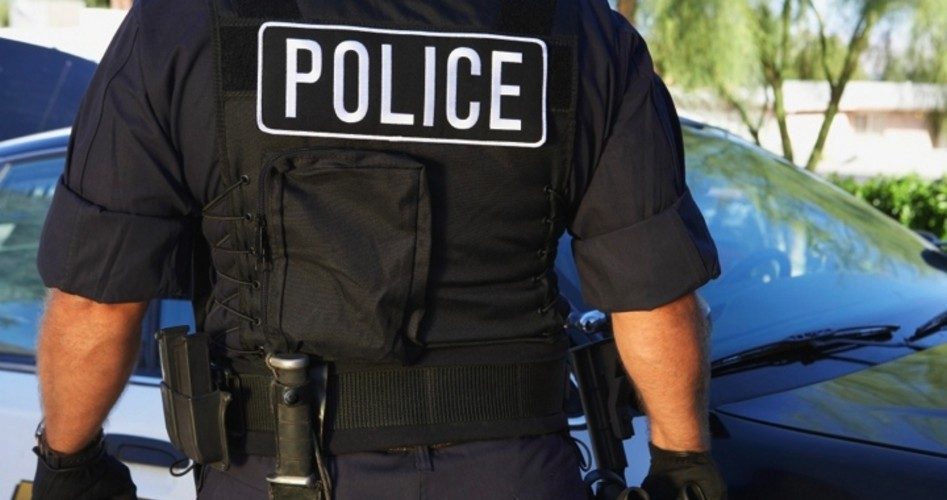
On August 1, citizens in Minnesota will rejoice that the police can no longer steal their property without their being convicted — or even charged with — a crime. Until then, Minnesota remains an upside-down world, as do many other states, where police can seize cash and property if they think that somehow that cash or property was involved in a crime. Until August 1, citizens who have had their property seized will still have to prove a negative: that their property was neither the “instrument” nor the “proceeds” of the charged crime.
Lee McGrath, executive director of Minnesota’s chapter of the Institute for Justice (IJ), which was instrumental in successfully pushing for passage of the bill, noted:
No one acquitted in criminal court should lose his property in civil court.
This change makes Minnesota’s law consistent with the great American presumption that a person and his property are innocent until proven guilty.
Under present law, police in Minnesota not only don’t have to bother with such niceties as warrants and judges as required under the Fourth Amendment, they are allowed to keep most of the assets seized for themselves or their departments. In Minnesota, until August 1, theft is legal if it’s done by the police.
IJ gave Minnesota a “D” on its “Policing for Profit” scorecard prior to passage of SF 874, explaining that
The owner is presumed guilty, bearing the burden of showing that he is the innocent owner.
Law enforcement receives as much as 90 percent of the value of the forfeited property, thus providing a profit incentive to law enforcement to focus on civil forfeitures instead of other law enforcement duties….
In some instances, officers have been alleged to keep the property [stolen] for their own personal use.
There are two standards for asset forfeiture, often called asset confiscation: criminal and civil. Under criminal confiscation, the usual rule of law prevails: arrest, trial, conviction, and sentencing. Before a person is convicted, the prosecution must present a high standard of proof of his guilt. Under civil law, however, the standard of proof is much lower and often is based on mere suspicion of wrongdoing. As IJ explains:
Forfeiture is the government power to take property suspected of involvement in a crime. Unlike criminal forfeiture — used to take the ill-gotten gains of criminal activity after a criminal conviction — with civil forfeiture, police can take property without so much as charging the owner with any wrongdoing.
Owners caught up in civil forfeiture proceedings typically have few legal rights, while police and prosecutors enjoy all the advantages.
The number of those caught up in such illegal confiscations is legion. For instance, Tan Nguyen was driving home from Las Vegas, Nevada, with about $50,000 in cash, which he had won during his visits to several casinos. He was pulled over by officer Lee Dove for driving three miles an hour over the speed limit. The officer searched his car and found the cash, which he confiscated. When Nguyen protested, Dove threatened to seize and tow his car, leaving him stranded in the Nevada desert unless he “got in his car and drove off and forgot that this ever happened.” It was a daylight highway robbery and Nguyen sued.
A settlement was reached last week, and Humboldt County, Nevada, returned his money along with an extra $10,000 to pay for his legal expenses. IJ noted that Nevada’s current system allows police officers such as Lee Dove to “seize property under a legal standard lower than the beyond-a-reasonable-doubt standard used in criminal convictions.” In its “Policing for Profit” report, IJ also gives Nevada a rating of “D.”
In Virginia, a state police officer stopped Victor Luis Guzman for speeding on I-95 and confiscated $28,500 from him without charging him with any crime. The fact that he was transporting cash donations from his church didn’t matter. He had to sue to get the church’s money back.
In Florida, there is a stretch of highway now known as a “forfeiture corridor” on I-95 in Volusia County. Two “law enforcement” officers, Bob Vogel and Bill Smith, turned that stretch of highway into their own personal casino, with Vogel raking in more than $6.5 million before being caught. Two hours north on I-95, in Camden County, Georgia, Smith turned his “forfeiture corridor” into a $20 million payout over the past 20 years, using some of the money to buy himself a $90,000 Dodge Viper and build a “party house” for his friends.
The most recent and perhaps the most egregious example of “taking” under federal civil asset forfeiture laws is the case of United States v. 434 Main Street, Tewksbury, Massachusetts. The address is the location of the Motel Caswell, owned by Russell and Pat Caswell. The motel has been in the Caswell family for two generations and has rented out its rooms more than 125,000 times. Over the past 18 years there have been about 30 drug-related arrests at the motel, and each time the owners have cooperated with the police. But the DEA attempted to seize the million-dollar motel under federal civil asset forfeiture laws. After a lengthy trial the court threw out the DEA’s claim, denied their seizure, and allowed the Caswells to live a quiet and peaceable life once again. Said the District Court: “The resolution of the crime problem [in Tewksbury] should not be simply to take [the Caswells’] property.
Scott Bullock, a co-author of the IJ study, said, “Americans are supposed to be innocent until proven guilty, but civil forfeiture turns that principle on its head. With civil forfeiture your property is guilty until you prove it innocent.”
Minnesota is the first state to begin the process of turning the world right-side up. Close behind should be Nevada, Florida, Georgia, Virginia, and Massachusetts.
A graduate of Cornell University and a former investment advisor, Bob is a regular contributor to The New American magazine and blogs frequently at www.LightFromTheRight.com, primarily on economics and politics. He can be reached at [email protected].
Related article:



